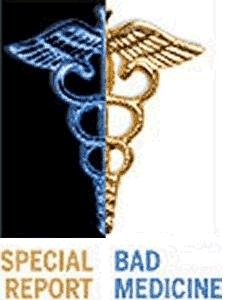One-third of those surveyed would decline to intervene
 If your doctor had a drug problem or was impaired in some way, you would probably hope that his or her colleagues would intervene and see that he gets help. A new survey suggests that doesn’t happen very often.
If your doctor had a drug problem or was impaired in some way, you would probably hope that his or her colleagues would intervene and see that he gets help. A new survey suggests that doesn’t happen very often.
A study in JAMA says a survey of physicians finds that while most support the professional commitment to report other physicians who they feel are incompetent or impaired — such as from alcohol or drug use — many did not follow through on making a report when faced with such a situation.
“Many states have mandatory reporting statutes, requiring physicians and other health care professionals to report to appropriate authorities those physicians whose ability to practice medicine is impaired by alcohol or drug use or by physical or mental illness,” the authors write. But data suggest that the rate of reporting by physicians is far lower than it should be, given the estimated numbers of physicians who become impaired or who are otherwise incompetent to practice at some point in their careers, according to background information in the article.
Catherine M. DesRoches, Dr.P.H., of Massachusetts General Hospital, Boston, and colleagues conducted the study to assess physicians’ beliefs, preparedness, and actual experiences related to colleagues who are impaired or incompetent to practice medicine. Data for the study were derived from a nationally representative survey of 2,938 eligible physicians practicing in the United States in 2009 in anesthesiology, cardiology, family practice, general surgery, internal medicine, pediatrics, and psychiatry.
Overall, 1,891 physicians (64.4 percent) responded. The doctors were questioned regarding their beliefs about and preparedness for reporting and experiences with colleagues who practice medicine while impaired or who are incompetent in their medical practice.
Looking the other way
 Among the findings of the survey, 64 percent of those surveyed agreed with the professional commitment to report physicians who are significantly impaired or otherwise incompetent to practice.
Among the findings of the survey, 64 percent of those surveyed agreed with the professional commitment to report physicians who are significantly impaired or otherwise incompetent to practice.
The most frequently cited reasons for not reporting an impaired or incompetent colleague included the belief that someone else was taking care of the problem; the belief that nothing would happen as a result of the report; fear of retribution; the belief that reporting was not their responsibility; or that the physician would be excessively punished.
“These national data regarding physicians’ beliefs, preparedness, and actual experiences related to impaired and incompetent colleagues raise important questions about the ability of medicine to self-regulate,” the authors write. “More than one-third of physicians do not completely support the fundamental belief that physicians should report colleagues who are impaired or incompetent in their medical practice. This finding is troubling, because peer monitoring and reporting are the prime mechanisms for identifying physicians whose knowledge, skills, or attitudes are compromised.”
Solving the problem
The researchers offer several suggestions for improving physician reporting systems, including making external regulation stronger; designing and maintaining reporting systems to protect the confidentiality of the reporting physicians; and to provide physician reporters with confidential feedback about the outcomes of any actions taken based on the report to address the concern that nothing will happen as a result of the report.
“All health care professionals, from administrative leaders to those providing clinical care, must understand the urgency of preventing impaired or incompetent colleagues from injuring patients and the need to help these physicians confront and resolve their problems. The system of reporting must facilitate, rather than impede, this process. Reliance on the current process results in patients being exposed to unacceptable levels of risk and impaired and incompetent physicians possibly not receiving the help they need,” the authors conclude.
July 15, 2010
Source: ConsumerAffairs.com
FAIR USE NOTICE:This site contains copyrighted material the use of which has not always been specifically authorized by the copyright owner. We are making such material available in our efforts to advance understanding of environmental, political, human rights, economic, democracy, scientific, and social justice issues, etc. We believe this constitutes a ‘fair use’ of any such copyrighted material as provided for in section 107 of the US Copyright Law. In accordance with Title 17 U.S.C. Section 107, the material on this site is distributed without profit to those who have expressed a prior interest in receiving the included information for research and educational purposes. For more information go to:
